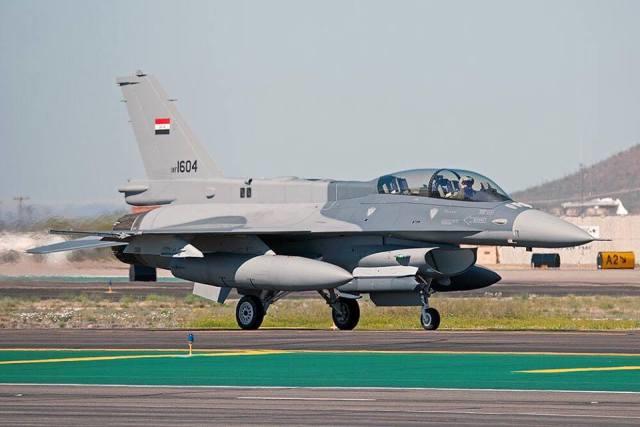US Halts All Weapons Deliveries To Iraq As Local Demands For Troop Exit Grow
Upping the ante and further threatening downward spiraling US-Iraq relations, the Trump administration has now suspended all weapons deliveries to Iraq, including missile systems promised as part a $1.8 billion contract signed in 2016.
Department of Defense officials cited security concerns over the arms deliveries, also amid recent White House threats to actually impose sanctions on the country while completely severing military ties. However, most analysts see these latest threats - which also have been tied with demands the country pay back the "billions" spent on an air base should US forces be made to leave - as but an attempt to leverage greater Baghdad dependency on Washington (and not Tehran).

The late Monday announcement also said US training and support for Iraq's F-16 fleet will pause. Air Force spokesman Brian Brackens said the US will begin shipments again "when the environment in Iraq is safe enough to resume."
The past week in Baghdad has been extremely volatile, also with multiple deaths throughout the country as protests grip major cities, following both last week's "million man protests" demanding an immediate US troop withdrawal, as well as anti-government protests which have raged on-and-off since October.
The last shipment was made Nov 14. The $1.8 billion deal signed in May 2016 provided Sidewinder missiles, Maverick missiles & other weapons to Iraq. Unclear how many have been delivered and how many left to go. https://t.co/Bplv32Mi6L
— Sara Sirota (@SaraLSirota) January 27, 2020
Thousands of US troops are still stationed throughout the country, but mostly concentrated in the north, in an “advise and assist” capacity. The US has made Iraq's military completely dependent on US aid since being essentially recreated after the 2003 invasion disastrous 'de-Baathification' policy under Coalition Provisional Authority chief Paul Bremmer.
Following the defeat of the ISIS 'territorial caliphate' however, US justification for remaining in the region has evolved.
Though officially the mission is still defined in the name 'anti-ISIL coalition forces,' the reality is that the administration and Pentagon have of late emphasized a 'counter Iran' mission, especially following the Jan.3 assassination by drone of the IRGC's Gen. Qassem Soleimani.
Many pundits have predicted the obvious: that the brazen strike on Soleimani and the commander of Iraq's Shia paramilitary forces (PMF) Abu Mahdi al-Mohandes has only served to hastened an inevitable future American departure from the country. Some even speculate that's what Trump may have secretly calculated all along in a "take major action" (against Iran's top elite commander) and "get out" kind of way.
https://ift.tt/2Gt59fP
from ZeroHedge News https://ift.tt/2Gt59fP
via IFTTT




0 comments
Post a Comment